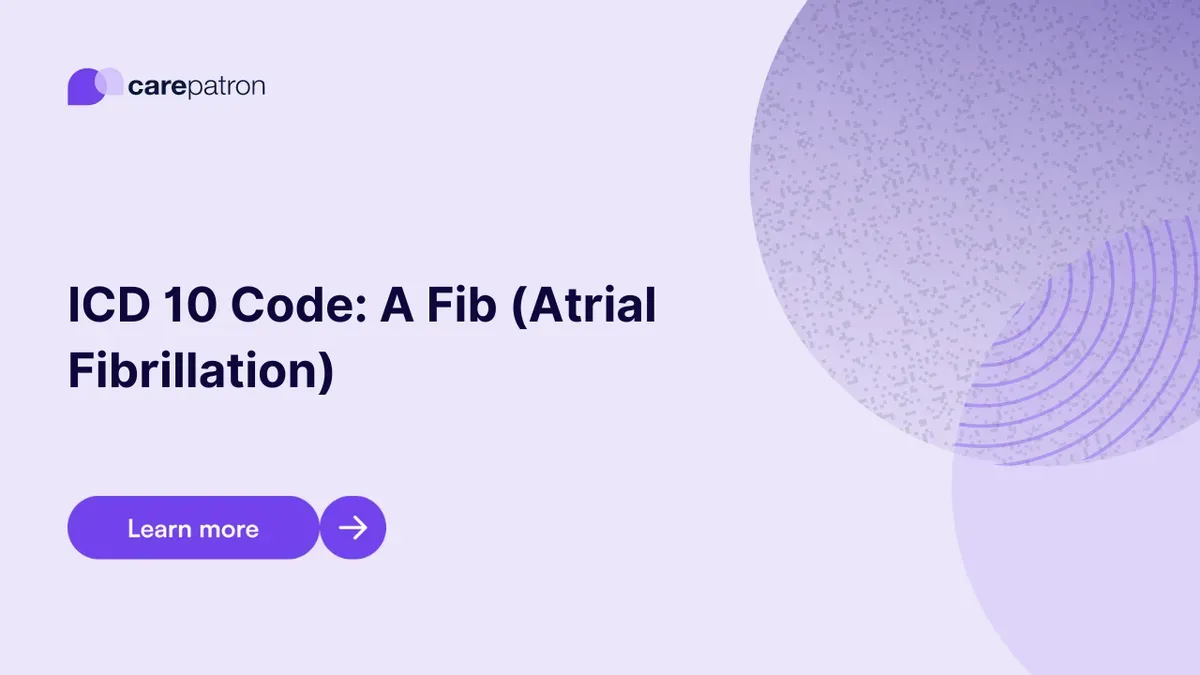
A Fib (Atrial Fibrillation) ICD-10-CM Codes
Dive into the 2023 guide on A Fib (Atrial Fibrillation) ICD-10-CM codes. Understand the specific codes, their clinical descriptions, and their billing implications.
Use Code
Commonly asked questions
A Fib is characterized by a rapid and irregular heartbeat, where the heart's upper chambers (atria) beat chaotically and out of sync with the lower chambers (ventricles). This differs from a regular, rhythmic heartbeat.
Certain factors can trigger A Fib episodes, including high blood pressure, heart valve disease, excessive alcohol or caffeine consumption, certain medications, and underlying heart defects or damage.
While A Fib isn't typically life-threatening, it can lead to severe complications such as stroke or heart failure if not managed. It's essential to seek treatment and regularly monitor the condition.
EHR and practice management software
Get started for free
*No credit card required
Free
$0/usd
Unlimited clients
Telehealth
1GB of storage
Client portal text
Automated billing and online payments
